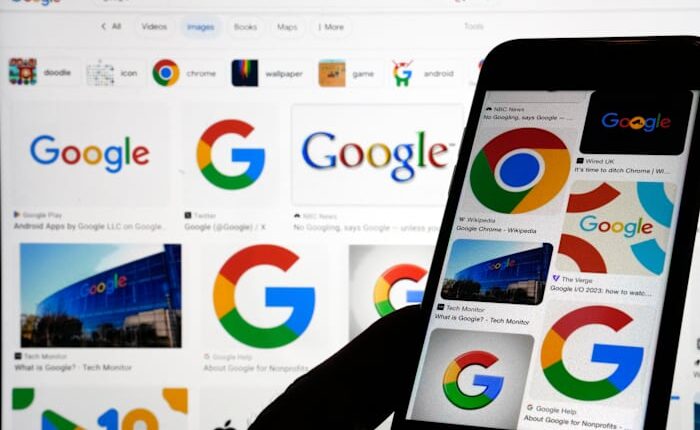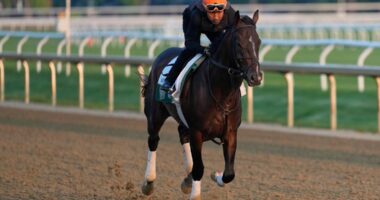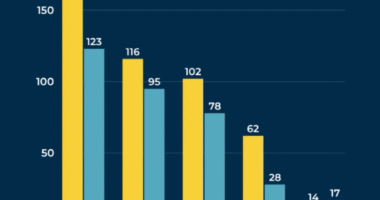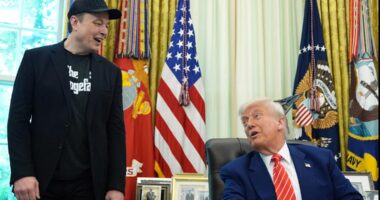
In San Francisco, Google took its case to the appeals court on Monday aiming to sway a three-judge panel to reverse a jury’s ruling that found its Android smartphone app store to be an illegal monopoly. The company also sought to overturn penalties imposed by a federal judge to halt its alleged misconduct. Epic Games, a video game maker that filed the lawsuit against Google’s Play Store, argued for upholding both the verdict and the sanctions to encourage innovation and lower prices in the Android app market.
During a nearly hour-long presentation at the Ninth Circuit Court of Appeals in San Francisco, Google’s attorney, Jessica Ellsworth, detailed the company’s reasons for contesting the trial’s outcome from 2023. One of the key points raised was that the judge presiding over the trial inappropriately defined the market, which differed from a similar antitrust case involving Apple in 2021.
Ellsworth also argued that Google had not consented to a jury trial and had actually requested a judge to decide the case, similar to Apple’s antitrust trial. According to Google, the decision to involve a jury was a misstep that affected the trial’s fairness.
Epic, the maker of the popular Fortnite video game, filed separate antitrust cases against Apple and Google on the same day in August 2020 and culminated in dramatically different outcomes. Unlike the jury in Google’s trial in San Francisco, U.S. District Judge Yvonne Gonzalez-Rogers largely sided with Apple in an 185-decision that defined the Play Store and Apple’s iPhone app store as part of a broader competitive market.
Ellsworth told the appeals court that U.S. District Judge James Donato improperly allowed Epic to turn the Google trial into a “do-over” that excluded the Apple app store as a rival in the market definition that led to the jury’s verdict in its case.
“You can’t just lose an issue that was fully litigated the first time (in the Apple case) and then pretend it didn’t happen,” Ellsworth said. She said the competition that Google and Apple engage in while making the two operating systems that power virtually all of the world’s smartphones “sufficiently disciplines” their actions in the app market.
But the appeals judges indicated they believed the market definitions could differ in the separate app store cases because Apple bundles all its software and the iPhone together — creating what has become known as a “walled garden” — while Google licenses the Android software that includes its Play Store a wide variety of smartphone makers.
“There are clearly some factual differences between the Android world and Apple world,” Judge Danielle J. Forrest told Ellsworth.
Judge Gabriel Sanchez also sounded skeptical about Google’s claims about being lumped with an improper market definition in its trial.
“Even if Google vigorously competes with Apple (in smartphone operating systems), that doesn’t mean it can’t create a different ecosystem where it’s a monopolist,” Sanchez interjected during Ellsworth’s presentation.
Epic attorney Gary Bornstein painted Google’s arguments as a desperate and unfounded effort to preserve the system that boosts Google’s profits with price-gouging commissions ranging from 15% to 30% on in-app purchases flowing from software downloaded through the Play Store.
The penalties that Donato imposed in October and subsequently postponed while Google pursues its appeal would impose a series of sweeping changes that include making the Play Store’s entire library of 2 million apps available to potential competitors — a move expected to result in lower commission rates.
The appeals court hasn’t set a timeline for issuing a ruling in the Play Store case, but it typically takes several months before a decision is reached.
Google is also currently facing other potential penalties that could include being forced to sell its Chrome web browser after a judge in another antitrust trial ruled its ubiquitous search engine is an illegal monopoly, too.
In Monday’s two-hour hearing Bornstein contended that Google never tried to define the Android app market during the trial the way it presented it during its appeal and reminded the three-judge panel that the bar should be set high before reversing a jury’s verdict and the ensuing punishment ordered by a lower court judge.
“The benefit of the doubt does not go to the wrongdoer,” Bornstein said.
The judges seemed more troubled by Donato’s decision to stick with a jury trial after the case changed shortly before the Epic trial when Google settled lawsuits brought by attorneys general across the U.S. and another prominent app developer, Match Group. An agreement for a jury trial had been reached when the attorneys general and Match cases were going to be combined with Epic’s, but Google wanted to revert to having a judge decide the outcome after settling some of the claims only to be rebuffed by Donato.
At one point during Bornstein’s presentation, Forrest openly mused about the possibility of declaring the verdict as a decision rendered by the equivalent of an advisory jury and sending the case back to Donato for a more lengthy ruling.
That is an approach favored by Ellsworth, who pointed out that the judge’s ruling in the Apple app store case spanned nearly 200 pages while the jury in the Google trial “were asked eight questions and they offered 14 words defining a relevant market.”
But Bornstein urged the appeals court to resort to giving Donato a “homework assignment” that would give Google more time to profit from its illegal conduct.
Copyright 2025 The Associated Press. All rights reserved. This material may not be published, broadcast, rewritten or redistributed without permission.

















